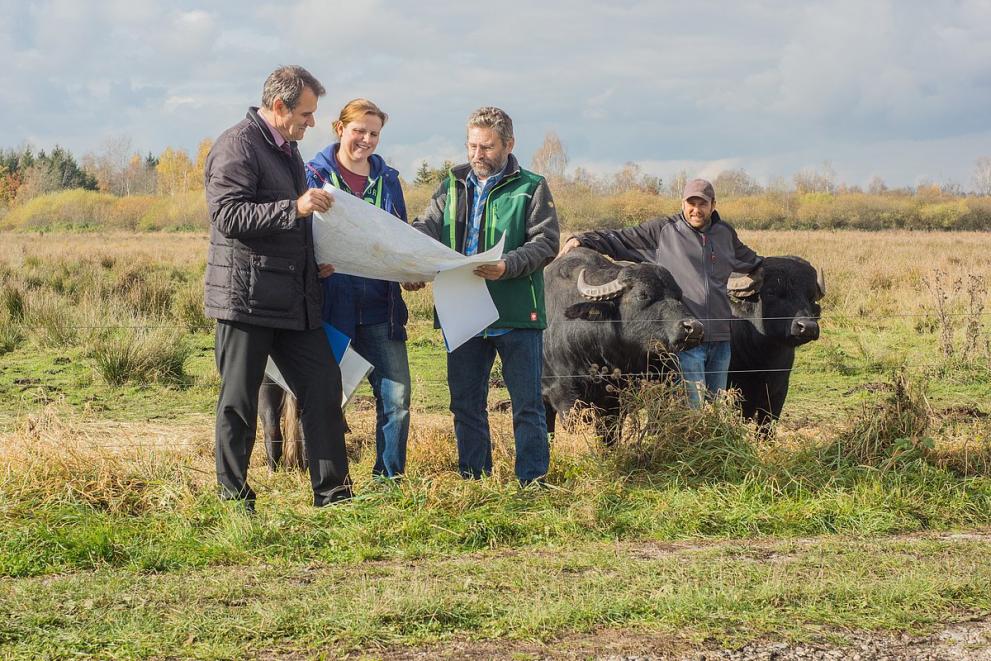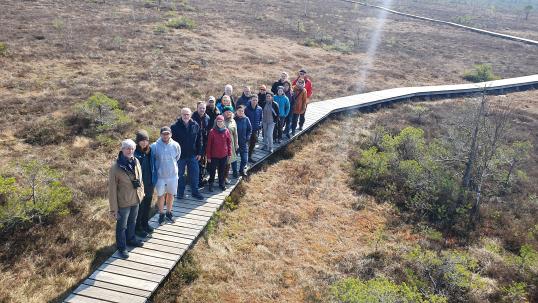
About the finalist
| Lead applicants | Deutscher Verband für Landschaftspflege e.V. (DVL); Landcare Europe e.V. |
| Category | Cross-border cooperation |
| Countries involved | Belgium, Croatia, France, Germany, Hungary, Ireland, Italy, Lithuania, Luxembourg, Netherlands, Romania, Spain and Serbia |
| Main Natura 2000 sites | Munții Ciucului (Romania), Nemuno delta (Lithuania), Valle del Ticino (Italy) |
| Website | www.landcare-europe.org |
Overview
The relationship between agriculture and biodiversity conservation has long been fraught with tensions and conflicts of interest. To address this, national landcare associations (LCAs) work with farmers and local communities, as well as politicians and administrative bodies, across Europe to plan and implement biodiversity-friendly agricultural land management in Natura 2000 sites (and beyond). They aim to ensure the long-term preservation of natural, semi-natural and man-made, cultural heritage landscapes with resilient and biodiverse ecosystems, that secure viable income to local communities.
Since 2007, the Germany Landcare Association (DVL) has been working to connect LCAs in a European network through tailored workshops and field visits featuring examples from across European regions. Since 2021, core activities have included enhancing knowledge and establishing best practices to improve Natura 2000 site management in an agricultural context, and thematic workshops and webinars engaging 100 experts from 50 institutions in 16 countries.
Actions were deployed in three Natura 2000 sites: in Romania (‘Munții Ciucului’), the Lithuanian ‘Nemuno Delta’ and the Italian ‘Valle del Ticino’, which served as test areas for the establishment and enlargement of national landcare networks. The activities were funded through various EU programmes (including the LIFE programme, the Rural Development Programme (CAP), and Cohesion Funds).
The actions culminated in the official registration of the European Landcare Association as an NGO in 2023, which marks an important milestone in the move to mainstream biodiversity concerns into farming practices in the EU. To date, the Association incorporates 12 national land-care organisations, and aims to foster knowledge exchange among LCAs, contribute to EU targets such as the EU Biodiversity Strategy, provide policy recommendations, and support the foundation of new LCAs all over Europe, improving Natura 2000 site management and the connectivity of the Natura 2000 network.
The national LCAs actively contributed to shaping recommendations for the EU common agricultural policy (CAP) and National Strategic Action Plans for Agriculture until 2027. This involvement holds the potential to significantly influence EU biodiversity conservation, as approximately 60% of CAP funds are designated for biodiversity conservation and climate change mitigation.
Pictures from the finalists
Video from the finalist:
Details
- Publication date
- 14 March 2024
- Author
- Directorate-General for Environment


